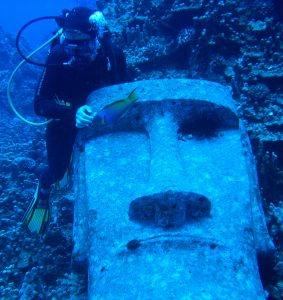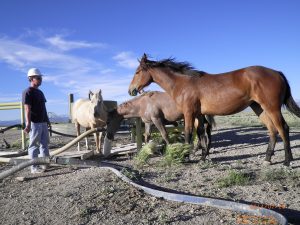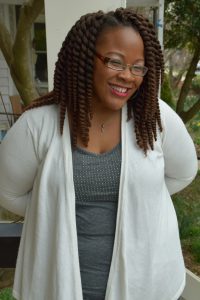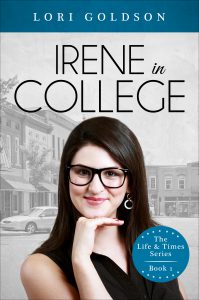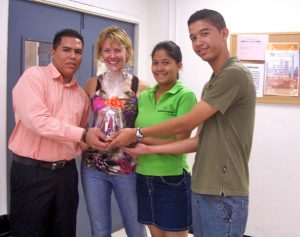Our Alums Explore Cultural Horizons
Our alumni have had extraordinary careers: from CIA personnel to medical translators, their paths have led them in diverse directions, but many have been able to foster or even expand their language and cultural knowledge even after graduation. Below you find the stories of three of our memorable alumni: Michael Curran (BAFLL Ancient Greek and Roman Studies 2008), Lori Goldson (BAFLL Spanish 2007), and Suzanne Tierney (BAFLL Spanish 1989, MAFLL Spanish 1992).
Michael Curran, a Classics major, used the skills he developed in our department to pursue a graduate degree in Restoration Ecology. Lori Goldson, a Spanish major, found inspiration in her experiences at UD studying Spanish for her novel on the experiences of “Irene,” a UD college student. Finally, Suzanne Tierney, who both studied at UD and taught as a Spanish instructor here, used her study abroad experience to begin her journey with the Fulbright Association. For more alumni news, please view our “Alumni Updates.”
Michael Curran
My days at the University of Delaware have played an instrumental role in shaping my career goals and current path. In 2008, I graduated from UD with a minor in Religious Studies and BAs in Biological Science, Geography, and Foreign Languages and Literature (concentration: Ancient Greek and Roman Studies). Upon entering the University of Delaware, I had a strong interest in ecology and the environment and initially decided to pursue a degree in Biology Education. After taking a couple of Latin courses and elective courses in mythology and philosophy, I decided to drop the education portion of my major and pursue an additional degree in Ancient Greek and Roman Studies. My degree in Ancient Greek and Roman Studies helped me learn to think clearly, write effectively, and gave me a new view to analyze environmental challenges.
After graduating from UD, I spent some time traveling and working in a plant nursery while I tried to figure out what exactly I wanted in a career. After much thought, I decided I needed to be in the field of Restoration Ecology. While researching graduate school, I found University of Wyoming and their College of Agriculture’s Wyoming Reclamation and Restoration Center to have one of the best programs in the country. In 2014, I graduated from UW with an MS degree in Rangeland Ecology and Watershed Management and have since been working on a PhD in Ecology. The foci of my master’s degree work involved land reclamation and ecosystem restoration associated with oil and natural gas development through a research grant from BP America Production Company. In 2013, I was contacted by the US Fish and Wildlife Service to discuss my research with BP in relation to a pending Endangered Species Act listing decision for the Greater sage-grouse, a bird whose habitat spans eleven western states. I was subsequently offered a Research Assistant position as a PhD student and have been working with twenty-one oil and natural gas operating companies throughout the state of Wyoming to track disturbance and reclamation efforts and to conduct research improving reclamation techniques.
While it may seem odd that my PhD focused on Restoration Ecology is tightly linked to my bachelor’s degree in Ancient Greek and Roman Studies, I feel the skills and knowledge gained at UD proved critical to my success as a graduate student. Aside from learning to think and communicate clearly and effectively, I gained knowledge on a variety of other topics during my training in Classics that are still quite relevant to my research today. Many of the basic principles of Western Law, which were touched upon during my undergraduate experience, are still relevant to my research and its connection with the Endangered Species Act. Additionally, ethical and philosophical questions in regard to finding a balanced usage of the earth to extract natural resources and sustain wildlife populations, the aesthetic beauty of landscapes, and recreation opportunities for humans are deeply embedded in Restoration Ecology. Perhaps the class from my undergraduate experience which sticks with me most today is a seminar in Latin, taught by Dr. Annette Giesecke, in which a small group and I were tasked with translating and analyzing Lucretius’ De Rerum Natura. Many principles covered by Lucretius in ancient times are at the forefront of humans’ relationship with our planet to this very day. As an aspiring scientist, it is my opinion that ethical, moral, and philosophical values be accounted for in conducting research which influences society and policy. I am quite confident I would not be where I am today without having earned a degree in Ancient Greek and Roman Studies almost a decade ago.
Lori Goldson
UD made a tremendous impact on me and my life, so much so that it’s the setting of my first novel, Irene in College. During my years there, I was lucky enough to major in English and Spanish, write for The Review, study in Mexico for a semester, and meet a host of people who would later become parts of my first published novel.
Irene in College is a novel that I conceptualized in 2010. The book focuses on a young Latina from New Jersey who is making her way through the growing pains of young adulthood along with her best friend, Michaela. The two explore their friendship, facets of relationships, and deal with the mental illness of Irene’s mother through this novel. It was published by Tate Publishing on March 10, 2015 and received acclaim from blogger Samantha March from Chicklitplus.com. It currently has four stars on Amazon.com. The sequel, The Adulthood, is currently being revised for an independent release.
When I began writing this novel, I was twenty-six, about five years after graduation. It wasn’t until then when I was teaching college students as an adjunct professor in Philadelphia that I began to reflect and understand the complexities of being in the middle again as I observed my students and interacted with them. My time at UD, as that of the protagonist, Irene, was during the young adult equivalent to being in junior high again. While one is desperately trying to prove oneself as an adult, life is constantly offering reminders in some fashion that one is still just a child. We’re not as mature as we might wish to be or even think we are, especially when dealing with hard decisions.
In my mid-twenties, I found myself thinking back to how the decisions of which major to choose and which classes to take were significantly easier than weighing some of the harder choices, such as supporting a friend’s decision to date someone who isn’t good for their mental or physical health, or helping a friend cope with the loss of a parent. During those years, young adults are often introduced to things that they may have never experienced before, such as mental health issues, homelessness, or homosexuality because they are no longer in an overly-protected environment.
I remember back to when I first stepped foot on campus, and like many of my comrades, the expectations and the reality of being a college student are not one in the same. There’s an assumption that life will become easier because one is no longer under such strict supervision, but instead, the expectation to supervise oneself leaves many showing just how immature, unprepared, and irresponsible they are. Finding a balance between freedom and responsibility with trying to balance a social life and scholastics is one of the hardest lessons learned early on as a college student.
Like myself and many I know, Irene is experiencing many firsts in this novel as a college student. My times at UD taught me a lot about the various walks of life that people come from, and how not everyone is fortunate enough to have loving parents, supportive friends, or a strong sense of self. Some were considered “lucky” if they just had to take classes while others might’ve had to work full time and only attend school part time. Some of these assumptions are easily made as a high school student, especially if many of your schoolmates are from similar backgrounds. What makes college so special and so important is that it gives a new life experience and various perspectives, which is why I associate it with being in junior high again. Sadly enough, only life can teach the lessons that come with being college age. There are no classes to prepare you for some of the facets of life that come with the time period.
Suzanne Tierney
The former FLL Department was home to me for twenty years, from 1989-2009. After completing my BA and MA in Spanish, I became a Spanish instructor at UD. I loved how UD supported us in our desire to enrich our language program with the creation of teaching materials and service-learning classes, among other things. My SL project was a language-exchange program between UD students who learned Spanish and Hispanic community members who learned English. While teaching Spanish on campus was my primary responsibility, I also led and created study abroad programs, including a trip to Chile in 2008 during which I visited Rapa Nui (Easter Island) and I had the opportunity to see and learn about the giant Moai statues on Anakena Beach (see photo on front cover).
“Iorana” (“Hello”) was the first word I heard during my visit to the island. The language is somewhat similar to Tahitian, but is rapidly changing, and linguists fear it will be extinct within a few generations. This is due to the increasing number of tourists who visit, bringing with them their language and modern customs. When Chile acquired the territory in the 1960’s, there was no specific plan on how to deal with this polemic situation and the advantages and disadvantages of tourism.
Yet it’s likely that the “right” kind of tourism, such as the UD’s study abroad immersion programs, is advantageous. Students learn to value other cultures and speak their languages, and these experiences might be just the catalyst that a student needs to join in extended programs, such as the Fulbright experience.
A highlight of my career occurred shortly after my trip to Rapa Nui in 2008, when I myself was awarded a Fulbright Scholar Grant. Current chair Dr. Richard Zipser was extremely supportive of my project, entitled “Enhancing the Instruction of English in Panama.” This country was a perfect fit for me, and from August 2008 – July 2009, I lived in Panama City. At my host university, “la Tecnológica,” I taught a wide range of both English language and FL Pedagogy courses. Outside of the University, I collaborated with the Peace Corps, local NGOs, and the US Embassy Outreach Department. I directed language-training seminars in different provinces, including the Darien, which is the most remote. The Panamanian people always impressed me with their incredible sense of adventure, and their ability to roll with the punches. For example, one day the electricity cut out when I was giving an exam, and rather than quit, my students simply moved their chairs next to the window to use the sunlight to read.
One of my most challenging projects was serving as an Interpreter for the USS Comfort, a humanitarian “hospital ship” which offered medical care to underserved communities. Working alongside doctors and nurses, we provided treatment and health education clinics in the Darien Province.
On a personal note, my family also benefitted from Fulbright experience. My sons Allen and Marcus accompanied me throughout most of my program. They tutored English, hiked jungle trails, and prepared food with Guna Yala Indigenous friends in the San Blas Islands. One of my favorite memories is when we cooked a traditional Thanksgiving dinner at a boys’ home outside of Panama City.
Although my Fulbright year has long ended, I’m still involved with the organization in many ways. After resigning from UD in Dec 2009 to move to Seattle, I joined the Fulbright Association. As the VP of our local chapter in Greater Puget Sound, I plan events for visiting students and scholars. One of my favorite outings has been to the Pilchuck School of Glass, of which Dale Chihuly, a famous blown-glass artist and former Fulbrighter, is a co-founder.
Recently, the Association has been implementing exciting programs which allow Fulbrighters to continue their engagement in international communities. In August of 2015, I was selected to participate in “Envision Fulbright,” a ten-day program designed to distribute reading glasses in countries such as the Dominican Republic. I was a member of a twenty-person Medical Brigade, which consisted of doctors, nurses, and medical students from all over the US. We traveled to the Haitian Bateys, on the north coast of the DR, and provided basic medical services to the community.
Home to me now is downtown Seattle, a vibrant city rich with natural beauty. My daily commute to the University of Washington, where I teach classes in Spanish and ESL, includes views of Mount Rainier and Lake Washington. It seems fitting that I will spend the Fall Quarter of 2016 in Leon, Spain with my UW students, who will benefit from the superior study abroad training that began for me at UD.
This entry was posted in Cover Story, Front Page Feature, Polyglot and tagged Ancient Greek and Latin, Current Issue, Fall 2016 Polyglot, Lori Goldson, Michael Curran, Spanish, Suzanne Tierney.

